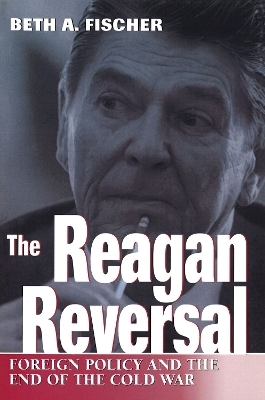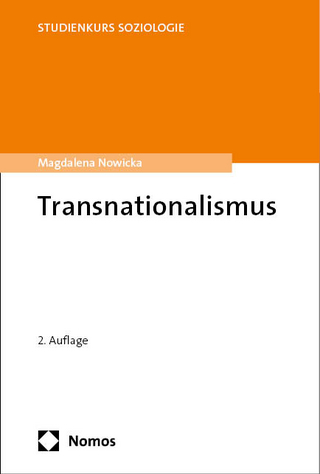
The Reagan Reversal
Foreign Policy and the End of the Cold War
Seiten
2000
University of Missouri Press (Verlag)
978-0-8262-1287-0 (ISBN)
University of Missouri Press (Verlag)
978-0-8262-1287-0 (ISBN)
In this study, the author demonstrates that rather than simply being reactive in bringing about an end to the Cold War, it was the US President who first sought a rapprochement, calling for ""dialogue, co-operation and understanding"". She examines the possible theories for this reversal in policy.
It is often assumed that Ronald Reagan's administration was reactive in bringing about the end of the Cold War, that it was Mikhail Gorbachev's ""new thinking"" and congenial personality that led the administration to abandon its hard-line approach toward Moscow. In this study, the author demonstrates that President Reagan actually began seeking a rapprochement with the Kremlin fifteen months before Gorbachev even took office. She shows that Reagan, known for his long-standing antipathy toward communism, suddenly began calling for ""dialogue, cooperation and understanding"" between the superpowers. What caused such a reversal in policy? Fischer considers three explanations for the reversal. First, it was an election year and public opinion had shifted, thus forcing the administration to become more moderate. Second, new personnel, namely Secretary of State George Schultz and National Security Adviser Robert McFarlane, took control of US policy and made changes more in line with their personal views. Third, Reagan himself may have redirected US policy out of his fear of nuclear war. This last option is the explanation Fischer defends as most significant. In the fall of 1983, the Kremlin mistook a NATO military exercise for the preliminary stages of a nuclear strike and prepared to retaliate. After this narrowly avoided nuclear exchange, Reagan began to re-examine his views on nuclear war. This hypothesis, explains why the US policy was reversed, the timing of the shift, and the nature of the changes made. This study challenges the conventional wisdom about the president himself and reveals that Reagan was - at times - the driving force behind US-Soviet policy. ""The Reagan Reversal"" should stimulate new controversy among scholars concerning the end of the Cold War.
It is often assumed that Ronald Reagan's administration was reactive in bringing about the end of the Cold War, that it was Mikhail Gorbachev's ""new thinking"" and congenial personality that led the administration to abandon its hard-line approach toward Moscow. In this study, the author demonstrates that President Reagan actually began seeking a rapprochement with the Kremlin fifteen months before Gorbachev even took office. She shows that Reagan, known for his long-standing antipathy toward communism, suddenly began calling for ""dialogue, cooperation and understanding"" between the superpowers. What caused such a reversal in policy? Fischer considers three explanations for the reversal. First, it was an election year and public opinion had shifted, thus forcing the administration to become more moderate. Second, new personnel, namely Secretary of State George Schultz and National Security Adviser Robert McFarlane, took control of US policy and made changes more in line with their personal views. Third, Reagan himself may have redirected US policy out of his fear of nuclear war. This last option is the explanation Fischer defends as most significant. In the fall of 1983, the Kremlin mistook a NATO military exercise for the preliminary stages of a nuclear strike and prepared to retaliate. After this narrowly avoided nuclear exchange, Reagan began to re-examine his views on nuclear war. This hypothesis, explains why the US policy was reversed, the timing of the shift, and the nature of the changes made. This study challenges the conventional wisdom about the president himself and reveals that Reagan was - at times - the driving force behind US-Soviet policy. ""The Reagan Reversal"" should stimulate new controversy among scholars concerning the end of the Cold War.
Beth A. Fischer is Assistant Professor of Political Science at the University of Toronto and is coauthor of The Constitution and American Foreign Policy.
| Erscheint lt. Verlag | 31.3.2000 |
|---|---|
| Zusatzinfo | bibliography, index, tables |
| Verlagsort | Missouri |
| Sprache | englisch |
| Gewicht | 310 g |
| Themenwelt | Sozialwissenschaften ► Politik / Verwaltung ► Europäische / Internationale Politik |
| Sozialwissenschaften ► Politik / Verwaltung ► Politische Theorie | |
| ISBN-10 | 0-8262-1287-5 / 0826212875 |
| ISBN-13 | 978-0-8262-1287-0 / 9780826212870 |
| Zustand | Neuware |
| Haben Sie eine Frage zum Produkt? |
Mehr entdecken
aus dem Bereich
aus dem Bereich
erfolgreiche Interessenvertretung durch Prozesskompetenz im komplexen …
Buch | Hardcover (2023)
Wiley-VCH (Verlag)
42,00 €


